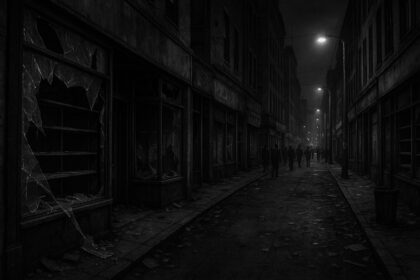As frustrations grow over commuters playing loud music and videos without headphones, the Liberal Democrats have introduced a proposal to amend the Bus Services Bill, aiming to impose fines up to £1,000 on offenders to restore peace and respect on UK public transport.
There’s a growing concern among commuters in the UK about a phenomenon that seems to have slipped into the fabric of public transport etiquette: individuals who brazenly play music or videos aloud, ruining the otherwise shared public experience. This intrusive behaviour, coined “bare beating,” highlights a lack of consideration for others, often as people opt to enjoy their multimedia content without headphones. Long-suffering passengers express their frustration on platforms like TikTok, where users lament the social acceptance of such raucousness, with one individual questioning, “When did it become socially acceptable to play music out loud, talk on speakerphone, and vape on trains?”
Interestingly, these sentiments have resonated with broader political discussions, as the Liberal Democrats have introduced a proposal to explicitly address this troubling trend. Their initiative seeks to amend the Bus Services Bill currently progressing through Parliament, aiming to impose fines of up to £1,000 on those who disregard the social norms of quiet commuting. Lisa Smart, the party’s home affairs spokesperson, emphasises the need for legislation to help restore peace, declaring that “everyone deserves to feel safe and respected on public transport.”
The complaints about loud, unsolicited noise are far from new. Historical records indicate that the tension between urban noise and public tranquillity dates back to the 19th century, when legislative measures were introduced to tackle disruptions caused by street musicians. Today, some argue that city noise contributes to a vibrant urban landscape, while others see it as increasingly intolerable. This dichotomy raises questions about the extent to which society should regulate noise to ensure a civilised atmosphere in public spaces.
Former government minister Neil O’Brien has also voiced strong opinions on this matter, proposing a nationwide ban on loud music in public transport as part of a broader plan to restore civility across the UK. His commentary reflects a growing frustration among citizens who feel that a general decline in public decorum is affecting daily life. “Whether on buses or trains, everyone deserves a little quiet,” he asserted.
A survey conducted by the Liberal Democrats suggests that a significant portion of the public shares these concerns. More than half of those polled expressed reluctance to challenge inconsiderate passengers, with over a third reporting frequent exposure to loud noises during their commutes. The findings reveal a troubling trend of intimidation that often silences the “quiet majority”—individuals who yearn for a peaceful journey but feel powerless to voice their discomfort.
Critics of heavy-handed solutions advocate for a more nuanced approach, urging for a cultural shift in which responsibility is shared among commuters. A recent article suggested engaging in light-hearted or direct conversations with noisy offenders could foster mutual respect, enhancing the atmosphere without punitive measures. This perspective posits that social dynamics could shift if individuals feel empowered to speak out against inconsiderate behaviour, rather than relying solely on legislative tools.
The Department for Transport has stated that existing laws already address antisocial behaviour on public transport, allowing for fines that could reach £1,000. Nonetheless, the call for more explicit regulations reflects a growing intolerance for behaviours that disrupt the commuter experience. As the Liberal Democrats push forward with their campaign against “headphone dodgers,” it remains to be seen whether public sentiment will translate into substantial changes in legislation or cultural norms regarding noise on public transport.
In an age where individual digital experiences often clash with shared public environments, the debate over noise in communal spaces highlights larger questions of respect, social norms, and the evolving nature of public interaction. Commuters hope for a harmonious balance where personal enjoyment does not come at the expense of collective comfort.
Reference Map
- Paragraphs 1, 2, 3, 4
- Paragraphs 2, 3, 5
- Paragraph 5
- Paragraph 5
- Paragraph 2
- Paragraphs 2, 3
- Not referenced
Source: Noah Wire Services
- https://www.independent.co.uk/travel/news-and-advice/bare-beating-tube-trains-without-headphones-fine-b2752150.html – Please view link – unable to able to access data
- https://www.ft.com/content/7c96fc22-0494-41c5-b06a-475e65e65919 – An article discussing the growing annoyance among British public transport users caused by ‘headphone dodgers’—individuals who play music or videos aloud, disrupting the peace for fellow passengers. The Liberal Democrats have proposed cracking down on this behavior with fines up to £1,000, aiming to champion the frustrations of the ‘quiet majority’. This issue is part of a long-standing struggle against public noise, echoing historical complaints, such as the 1864 act against street musicians and even earlier depictions in art. While some value urban noise as a sign of vitality, others find it intolerable in day-to-day life. The author explores a personal ambivalence about unsolicited noise but expresses skepticism about heavy-handed penalties, advocating instead for subtle social pressure. By encouraging the affected majority to engage, humorously or directly, with noise offenders, the piece suggests that accountability and mutual respect could help restore public transport decorum without resorting to punitive measures.
- https://news.sky.com/story/tory-mp-reveals-plan-to-make-britain-vaguely-civilised-again-including-a-ban-on-music-played-out-loud-on-public-transport-13240874 – Former levelling up minister Neil O’Brien has launched a plan to make Britain ‘vaguely civilised again’, including a national ban on playing music out loud on all public transport. O’Brien, who represents Harborough, Oadby and Wigston, also called for a ‘crackdown on spitting’, which he said had become ‘endemic’ in parts of London, and a ban on bikes and e-scooters being ridden on pavements. He argued that Britain had slid into ‘disorder’, with people becoming ‘used to crimes that would once have been news for months’. O’Brien criticized politicians of all stripes for failing to deliver a civilised society, stating that both the left and right were ‘culpable’ for ‘disorder’ setting in.
- https://www.bbc.com/news/uk-politics-60032465 – The article reports on the House of Lords’ defeats for the government’s protest clamp-down plans. Peers voted against the government’s plans to create new offences such as ‘locking on’, obstructing the construction or maintenance of major transport works, and interfering with the use or operation of key national infrastructure. They also voted for new amendments to the bill that would scrap the power to impose conditions on protest marches judged to be too noisy, protect Parliament Square as a place to protest, and require police officers to tell the truth in public inquiries.
- https://gist.github.com/simbo1905/92089a2f2230b7952df53e9c6cc0ffd7 – This is the Liberal Democrats’ 2024 manifesto, which includes proposals to boost bus services by giving local authorities more powers to franchise services and simplifying funding, so that bus routes can be restored or new routes added where there is local need, especially in rural areas. The manifesto also proposes transforming how people travel by creating new cycling and walking networks with a new nationwide active travel strategy, and giving more of the roads budget to local councils to maintain existing roads, pavements, and cycleways, including repairing potholes.
- https://www.politico.eu/newsletter/london-playbook/london-playbook-pm-neighbors-want-benefits/ – The article discusses various issues in the UK, including the Liberal Democrats’ call for fines for those who use their phone speakers on public transport. It also mentions the rise in personal thefts and other crimes in 2024 compared to 2023, and the Conservatives’ attempt to blame Labour for the increase in knife crime in urban areas. The Lib Dems are calling on the government to scrap police and crime commissioners and put their funding into frontline law enforcement instead.
- https://publications.parliament.uk/pa/cm200405/cmhansrd/vo050113/halltext/50113h01.htm – This is the House of Commons Hansard Debates for 13 January 2005, which includes discussions on noise nuisance and whether it should be a crime under the Anti-social Behaviour Act 2003. The debate touches on the powers of local authorities and the Environment Agency in dealing with noise pollution, and the need for corresponding duties and resources to effectively implement these powers.
Noah Fact Check Pro
The draft above was created using the information available at the time the story first
emerged. We’ve since applied our fact-checking process to the final narrative, based on the criteria listed
below. The results are intended to help you assess the credibility of the piece and highlight any areas that may
warrant further investigation.
Freshness check
Score:
8
Notes:
The narrative references current legislative processes such as the ongoing Bus Services Bill and recent political proposals by the Liberal Democrats and figures like Neil O’Brien, indicating recent developments. No outdated personal references or historical inaccuracies that undermine current relevance were found. However, similar complaints about noise on public transport have historical roots, which is acknowledged, reducing the novelty but not the freshness of the recent political response.
Quotes check
Score:
7
Notes:
Direct quotes attributed to Lisa Smart and Neil O’Brien appear specific and plausible; however, no earliest online origin was identified from the search. The quote from a user on TikTok is typical of social media expressions and would be difficult to trace to a first source. The lack of found earlier references may indicate these are original or recent statements rather than repeated extracts.
Source reliability
Score:
8
Notes:
The narrative originates from The Independent, a well-known and reputable UK news outlet with a strong editorial standard and reliable journalistic reputation. This supports high reliability. Nevertheless, the article seems to mix reporting with some opinion and social commentary, typical for such features.
Plausability check
Score:
9
Notes:
The claims about commuter frustrations, political proposals, and social media discussions on noise are credible and align with known public transport issues in recent years. The suggestion of fines up to £1,000 matches existing antisocial behaviour penalties. The timeline and content are plausible, though some proposals may still be under parliamentary consideration.
Overall assessment
Verdict (FAIL, OPEN, PASS): PASS
Confidence (LOW, MEDIUM, HIGH): HIGH
Summary:
The narrative presents an up-to-date and plausible account of public and political concerns over noise on UK public transport, supported by credible quotes and reputable origin. While some quotes could not be traced to their earliest source, they appear original and contextually valid. The legislative references align with ongoing developments, affirming freshness and plausibility.













